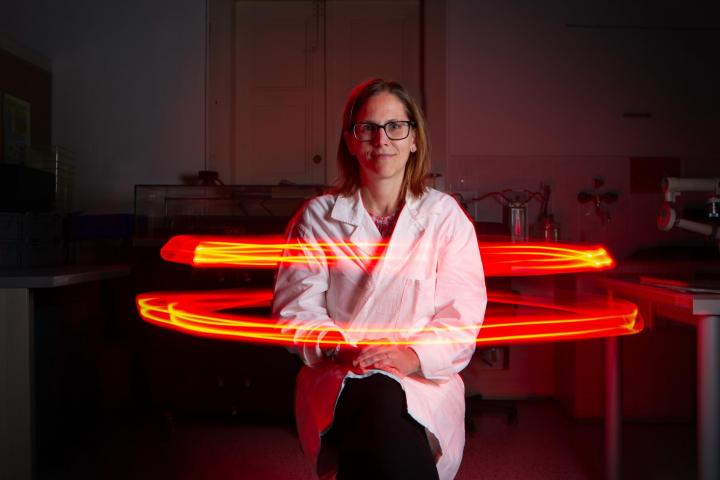
Radiation therapy (RT) is the cornerstone of modern cancer treatment. Conventionally, patients are treated in a horizontal position while the beam is guided around the body, allowing it to be directed at the target from any angle. In contrast, the UPLIFT project focuses on treating patients in the upright position (upRT), which allows patients to rotate in front of a fixed beam.
This approach could offer clinical benefits while saving space and reducing costs - two key factors in making advanced therapies available worldwide. Currently, 80% of cancer patients live in countries that have access to only 5% of global radiation therapy capacity.
"The upright patient position can help bridge this gap and make modern cancer care available to more patients around the world. In addition, treatment in the upright position could improve patient comfort and provide anatomical and physiological benefits, such as limiting body movement during breathing," explains the main benefits," explains Dr. Petra Trnkova, head of the Medical Physics Research Group at FJFI.
There is considerable interest in the new project, but important scientific questions remain unanswered and there are as yet no international rules of work for the upRT. In addition, current radiation therapy practice is designed to treat patients in the horizontal position. Within the UPLIFT project, the FJFI CTU is focusing on key issues such as developing methods to check treatment accuracy, verify correct positioning and develop clinical recommendations for quality assurance. This will advance the field especially in the area of creating clinical guidelines for patient treatment.
15 scientific institutions and industrial partners are directly involved in the project: GSI Helmholtzzentrum für Schwerionenforschung (consortium project leader), German Cancer Research Centre DKFZ and Helmholtz Centre Dresden-Rossendorf in Germany, Czech Technical University in Prague, Sheffield Hallam University, Leo Cancer Care and Loughborough University in the UK, Centre Léon Bérard and TheraPanacea in France, ASG Superconductors and Centro Nazionale di Adroterapia Oncologica in Italy, Jagiellonian University in Poland, Cosylab in Slovenia, RaySearch Laboratories in Sweden and Paul Scherrer Institute in Switzerland.
The Marie Skłodowska-Curie Actions (MSCA) programmes are one of the largest funding opportunities at EU level, supporting young talent in a consortium project while advancing research.